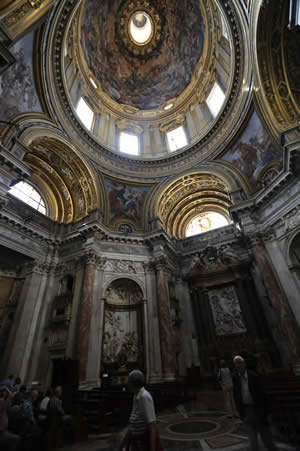
Swedenborg, on seeing from the inner eye
From Divine Love and Wisdom, Swedenborg Foundation New Century Edition, 2004
Anyone who can pursue and grasp inherent reality and its manifestation at all thoughtfully will necessarily come to grasp of the fact that it is wholly itself and unique. We call it wholly itself because it alone exists; and we call it unique because it is the source of everything else.
Further, since what is wholly itself and unique is substance and form, it follows that it is the unique substance and form, and wholly itself; and since that true substance and form is divine love and wisdom, it follows that it is the unique love, wholly itself, and the unique wisdom, wholly itself. It is therefore the unique essence, wholly itself, and the unique life, wholly itself, since love and wisdom is life.
All this shows how sensually people are thinking when they say that nature exists in its own right, how reliant they are on their physical senses and their darkness in matters of the spirit. They are thinking from the eye and are unable to think from the understanding. Thinking from the eye closes understanding, but thinking from understanding opens the eye. They are unable to entertain any thought about inherent reality and manifestation, and the thought that it is eternal, uncreated, and infinite. They can entertain no thought about life except as something volatile that vanishes into thin air, no other thought about love and wisdom, and no thought whatever about the fact that they are the source of everything in nature.
The only way to see that love and wisdom are the source of everything in nature is to look at nature on the basis of its functions in their sequence and pattern rather than on the basis of some of nature's forms, which register only on our eyes. The only source of nature's functions is life, and the only source of their sequence and pattern is love and wisdom. Forms, though, are vessels of functions. This means that if we look at only forms no trace is visible of the life in nature, let alone of love and wisdom, and therefore of God.
Swedenborg, Divine Love and Wisdom,pages 67-68
Portrait of Swedenborg by Carl Frederick von Breda